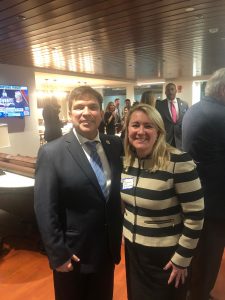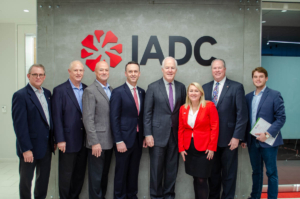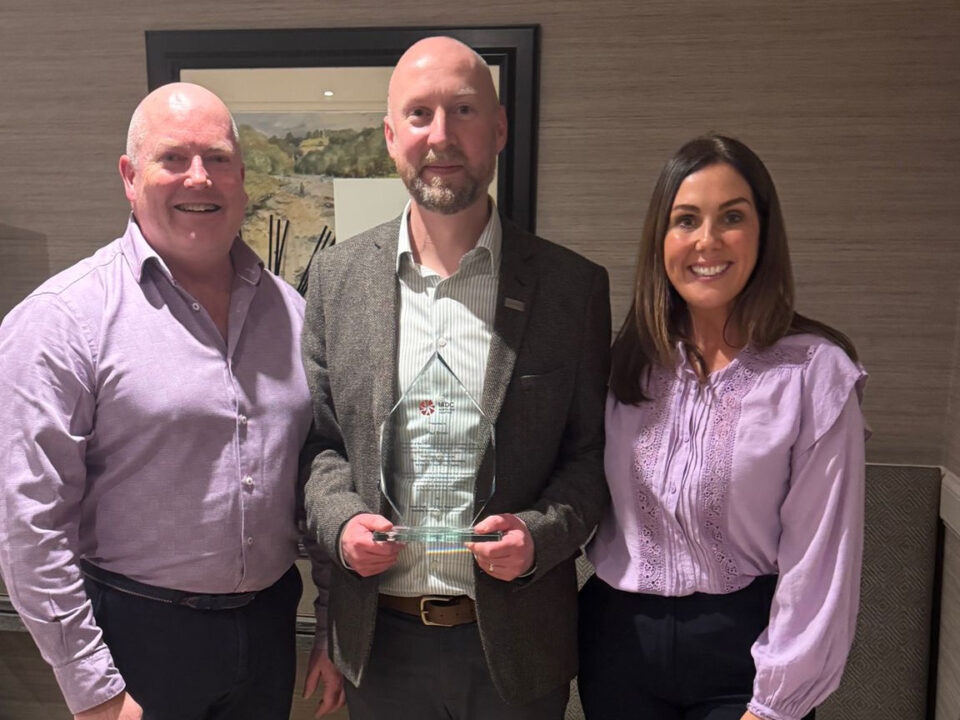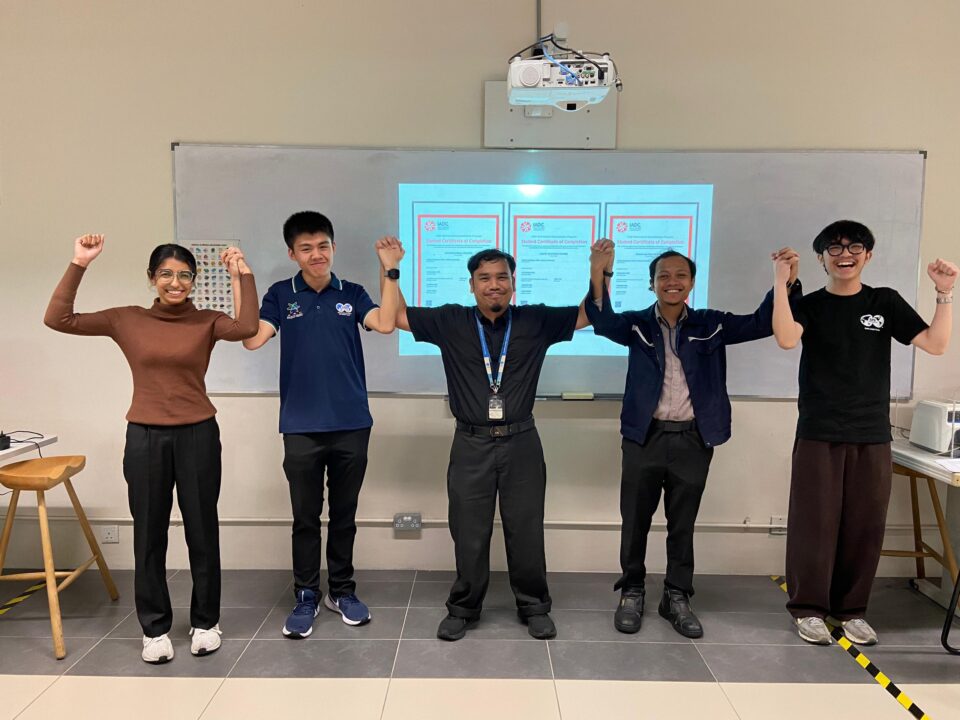
DRILLBITS
Monthly eNewsletter from the IADC
DrillBits – February 2020

DRILLBITS – February 2020
In This Edition
Sign Up For the DRILLBITS Email Newsletter!
Advocacy
IADC Supports Passage of USMCA
On 16 January, the U.S. Senate voted to advance the United States, Mexico, Canada Trade Agreement (USMCA), and it was signed by the President on 29 January. In response, IADC President Jason McFarland said:
“The Senate’s vote to advance the USMCA trade deal is good news for the economies of the United States, Mexico and Canada. Included in the deal is the continuation of zero tariffs on critical energy sources that fuel cars and heat homes as well as provisions that allow for the swift movement of equipment and personnel across the borders of North America, two issues that are particularly relevant to IADC’s membership. Trade between the countries supports millions of jobs and is a strong driver of economic growth, and we are thankful to President Trump for putting his signature on this historic trade agreement that will ultimately generate continued growth for a wide variety of industries.”
Netherlands Nitrogen Emissions Policy Causes Delays in Oil and Gas Sector
Nitrogen emissions (NOx and ammonia) in the Netherlands are among the highest in the EU, not least because of the country’s dense population with both very high industrial and very high agricultural production. As is the case in other countries, a ceiling is in place in the Netherlands for the allowable level of emissions.
For years, this level had been exceeded in several areas. However, in 2015 a policy was introduced, which in effect legalized this practice by making it possible to grant permits for projects that would be emitting nitrogen now, but which carried expectations for future savings. In this way, the overall emission quantity would be reduced. An example could be the construction of an emission-free building, which would have high emissions in the construction phase and no emissions later.
However, in 2019 the Dutch Council of State ruled that this policy represents a violation of the European Habitat Directive on the grounds that the predicted future savings are highly uncertain. As a result, the Dutch government is searching for solutions to drastically reduce nitrogen emissions. This has caused the introduction of lower speed limits on motorways, it has led to initiatives in the agricultural sector, it has caused delays of permits in the construction sector, and it has caused similar delays in the oil and gas sector. At present, operators estimate that more than 30 projects in our sector have been halted or are at risk of being halted.
The Dutch oil and gas trade organisation, NOGEPA, has made a significant effort to argue the industry’s case. In this regard, they have reached out to the industry, including a number of IADC member companies, in an attempt to map out initiatives already in place. The drilling contractors in turn involved IADC to help consolidate information from our industry regarding existing initiatives and new ideas which would help curb nitrogen emissions. This consolidated overview is now being used by NOGEPA in their advocacy efforts.
IADC Attends Congressional Oil and Gas Caucus Event 
On 11 February, IADC’s Vice President Government and Industry Affairs, Liz Craddock attended a Congressional Oil and Gas Caucus event in Washington, D.C. The Caucus is comprised of a group of House Democrats dedicated to educating Members of Congress about oil and gas productions and the issues involved. During the event, Ms. Craddock had the opportunity to speak to members of the Caucus including Representatives Mark Veasey (D-TX); Kendra Horn (D-OK); Henry Cuellar (D-TX); Lizzie Fletcher (D-TX); Lou Correa (D-CA) and Jim Costa (D-CA), about drilling contractors and their role in the industry and thank them individually for their support. Pictured is Ms. Craddock alongside Rep. Vicente Gonzalez (D-TX) who leads the Congressional Oil and Gas Caucus.
IADC Hosts U.S. Senator John Cornyn in Houston Office
 On Friday 10 January, IADC hosted U.S. Senator John Cornyn (R-TX) in its Houston office for a fundraising breakfast coordinated by the Texas Alliance of Energy Producers, and supported by IADC DRILLERSPAC, DEPA PAC and other participating contributors. From Left: Mark Denkowski, IADC; Bob Warren, IADC; Mike Bowie, Baker Hughes; Jason McFarland, IADC President; Senator Cornyn; Liz Craddock, IADC; Lee Womble, Cameron, a Schlumberger Company; Matt Giacona, IADC.
On Friday 10 January, IADC hosted U.S. Senator John Cornyn (R-TX) in its Houston office for a fundraising breakfast coordinated by the Texas Alliance of Energy Producers, and supported by IADC DRILLERSPAC, DEPA PAC and other participating contributors. From Left: Mark Denkowski, IADC; Bob Warren, IADC; Mike Bowie, Baker Hughes; Jason McFarland, IADC President; Senator Cornyn; Liz Craddock, IADC; Lee Womble, Cameron, a Schlumberger Company; Matt Giacona, IADC.
Washington D.C. Updates
House:
Having kicked impeachment to the Senate the second week of January, Democratic lawmakers used the rest of the month to roll out several policy priorities and introduce legislation they hope to message on going into 2020. Early in the month, the Energy and Commerce Committee released legislation that many are calling Democrats’ big 2020 energy policy push. The legislation focuses on funding and build-out of U.S. electric vehicle infrastructure. The Select Committee on the Climate Crisis is continuing to develop on its own climate policy report, which experts still believe will come out in March. On the Natural Resources front, Committee Chairman Grijalva will continue to pressure the administration on its BLM move, and will look issues subpoenas to senior DOI officials at some point. Other members of will continue to push out legislation aimed enhancing environmental protections. The most industry-relevant of these is Rep. McEachin’s effort at reforming aspects of offshore spill remediation (The Offshore Accountability Act of 2020).
Senate:
As stated in the constitution, Senators were required to be present six days a week for the entire month to oversee the impeachment trial of President Trump. This effectively grounded the Senate for the entire month in terms of legislation. Going forward, Senate Republicans will look to shift legislative goals to bipartisan wins that they can message on going into 2020. Leaders of the Senate Energy and Natural Resources Committee have begun to release information on a comprehensive legislative package to update energy policy for the first time in more than a decade. While it won’t address carbon pricing or regulation, the package will draw from the 52 energy bills that passed the committee last year that address efficiency, storage and clean energy research programs. Lawmakers have heralded the boosts to research and development associated with many of the bills as critical to the innovation agenda to help in the fight to reduce carbon emissions. On the nomination front, Senate Majority Leader McConnell has stated its his intention to continue to churn out approved nominees.
White House:
Ending over three years of investigations and congressional inquiry into various matters, President Trump was fully acquitted of impeachment this week and will remain in office at least for the rest of his term. Impeachment drama aside, the president spent much of January finalizing several policy goals he has been touting since his election, including signing the USMCA trade deal and finalizing a phase 1 deal with China. On the energy and environment front, the Administration spent the month formulating legislation to accomplish its NEPA rewrite. That process is currently behind closed doors and the public will not likely see a bill for several months. The President and his cabinet are now aggressively preparing for 2020 and messaging heavily on their policy priorities, including their support for the U.S. petrochemical sector and American energy independence.
INDUSTRY NEWS
IADC Celebrates 80 Years
In 2020, IADC will be celebrating it’s 80th anniversary. In recognition of the anniversary, IADC President Jason McFarland said:
“IADC was started in 1940 by a group of visionaries, who believed that drilling contractors needed a collective voice to advocate for their interests within our industry. From that small but auspicious start, IADC has grown, weathering massive industry changes and the various upturns and downturns, into the modern and influential association we are today. I’m proud to be leading IADC into the future, particularly as we face head on some of our industry’s most pressing issues, serving as the space where we can work together on solutions. For as far as we have come since 1940, our core values as an association have remained the same, and advancing the interests of drilling contractors remains our focus. This year, we will be honoring and celebrating our past, while looking forward to our future, and I invite you to join us. Stay up to date with us on social media, attend an IADC conference, get involved with your local chapter, contribute on an IADC committee. Our strong 80-year history has only been possible because of our membership’s commitment to supporting the Association, and your expertise and participation is valued.”
IADC Chairman’s Anniversary Award Program Now Accepting Submissions
IADC believes in the importance of continually improving performance for the drilling industry. The Chairman’s Anniversary Award was developed to recognize field-based individuals who have made a direct impact on improved performance for their company, either through a project or personal effort. The Award is given every five years as part of IADC’s anniversary celebrations.
Award winners will demonstrate how their innovative project directly improved performance in the field in one of the following ways:
- Eliminating injuries
- Enhancing process safety
- Reducing NPT
- Improving equipment reliability
- Increasing efficiency
Submissions are being accepted now through 31 May and will be judged based on the above criteria by a selected group of IADC staff and industry veterans. The winner will be contacted later this summer and the award will be presented by IADC Chair Julie Robertson during the IADC Annual General Meeting in November in San Antonio.
For more information and to submit a nomination, please visit the IADC Website.
Julie Robertson Named 2020 IADC Chair
The IADC Board of Directors has elected Julie J. Robertson as 2020 Chair of the association.
Ms Robertson has served as Chairman, President and CEO of Noble Corp since January 2018.
Previously, she served as Executive Vice President of the company from February 2006 and as Senior Vice President – Administration from July 2001 to February 2006. Ms Robertson also served continuously as Corporate Secretary of Noble from December 1993 until assuming the Chairman’s role in 2018. She also served as Vice President – Administration of Noble Drilling from 1996 to July 2001.
In 1994, Ms Robertson became Vice President – Administration of Noble Drilling Services. From 1989 to 1994, Ms Robertson served consecutively as Manager of Benefits and Director of Human Resources for Noble Drilling Services. Prior to 1989, Ms Robertson served consecutively in the positions of Risk and Benefits Manager and Marketing Services Coordinator for a predecessor subsidiary of Noble, beginning in 1979. She earned a Bachelor of Journalism degree from the University of Texas at Austin and attended the Advanced Management Program at the Harvard School of Business.
New WCI Board Members Named
Two new members have been named to the Well Control Institute Board of Directors. Dale Bradford, VP – Western Hemisphere Offshore for Murphy Oil Corporation, has joined as an operator representative, while Steve Haden, Senior VP of Project Management for Halliburton, has joined as a service company representative.
WCI operates under the auspices of IADC to ensure that operators, contractors, equipment manufacturers, and service providers have a forum to provide oversight and leadership on key well control initiatives. The WCI Board brings together drilling industry leaders from all sectors of the industry to develop comprehensive solutions needed to significantly improve well control performance worldwide.
Oil Production from Interior-Managed Leases Surpassed 1 Billion Barrels for First Time in History
On 11 February, the U.S. Department of Interior announced that for the first time in history, over one billion barrels of oil were produced in Fiscal Year 2019 from leases on Federal and American Indian-owned lands and offshore areas. The number represents a 122.5 million barrel increase in production when compared to Fiscal Year 2018.
Royalty revenues collected in Fiscal Year 2019 from oil production on Interior-managed lands increased by 21 percent over 2018 to $7.5 billion. Often the second-highest generator of federal income following taxes, energy revenue disbursements are a critical source of funding to states, American Indian Tribes and individual Indian mineral owners, as well as to the Land and Water Conservation Fund, Reclamation Fund, Historic Preservation Fund and the U.S. Treasury. Accounting for all energy production on federal and American Indian-owned lands and offshore areas, total revenues collected last year increased by 31 percent to approximately $12 billion.
More information can be found at the Department of Interior’s website.
OSHA Establishes Revised National Emphasis Program for Respirable Crystalline Silica
The U.S. Occupational Safety and Health Administration (OSHA) recently established a revised National Emphasis Program (NEP) to identify and reduce or eliminate worker exposures to respirable crystalline silica (RCS) in general industry, maritime and construction. The NEP targets specific industries expected to have the highest numbers of workers exposed to silica and focuses on enforcement of the new silica standards, one for general industry and one for maritime and construction.
Changes to the program include:
- Revised application to the lower permissible exposure limit for respirable crystalline silica to 50 micrograms per cubic meter (µg/m3) as an 8-hour time-weighted average in general industry, maritime and construction.
- Updated list of target industries (which includes oil and gas), as listed in the appendix of the NEP; from this list, area offices will develop randomized establishment lists of employers in their local jurisdictions for targeted inspections;
- Compliance safety and health officers will refer to current enforcement guidance for RCS inspection procedures;
- All OSHA regional and area offices must comply with this NEP, but they are not required to develop and implement corresponding regional or local emphasis programs; and
- State Plans must participate because of the nationwide exposures to silica.
For more information, please visit the OSHA website.
https://www.osha.gov/sites/default/files/enforcement/directives/CPL_03-00-023.pdf
Chemical Safety Board Approves Final Rule on Accidental Release Reporting
The U.S. Chemical Safety Board recently approved a final rule on accidental release reporting. The rule requires prompt reports to the CSB from owners or operators of facilities that experience an accidental release of a regulated substance or extremely hazardous materials that results in a death, serious injury or substantial property damage.
The prepublication version of final rule can be accessed via the Chemical Safety Board’s website.
Environmental Protection Agency Issues 2019 Year in Review
The U.S. Environmental Protection Agency (EPA) recently released its 2019 Year in Review which highlights major accomplishments and environmental progress over the course of the year.
The document can be accessed via the EPA’s website.
API Seeking Volunteers to Participate in Development of Guidance for BOP Equipment Condition Based Data/Maintenance Document
API is currently seeking volunteers to participate in the development of the document, Guidance for BOP Equipment Condition Based Data/Mainatenance to address Sections 6.5.2.1 and 6.5.2.3 in Standard 53.
These sections are defined as:
- 5.2.1BOP stack, BOP stack-mounted control equipment, and choke and kill equipment shall be inspected at least every five years in accordance with the equipment owner’s maintenance system. Individual components and subassemblies may be inspected on a staggered schedule. The inspection results shall be verified against one of the following:
the manufacturer’s acceptance criteria, or the equipment owner’s acceptance criteria if the equipment owner collects and analyzes condition-based data and performance data to justify their criteria.
- 5.2.3As an alternative to a schedule-based inspection program referenced in 6.5.2.1, the inspection frequency may vary from this five-year interval if the equipment owner collects and analyzes condition-based data (including performance data) to establish a different frequency.
Those interested in participating, can send their names and email addresses to Subcommittee 16 Chair Matt Kern at Matt.Kern@valaris.com or Jacqueline N. Roueche at rouechej@api.org . The first meeting of the task group is planned for 2 April and invitations will be sent out once the initial task group is formed.
IADC Accreditation
IADC to Receive Excellence in Practice Award from Association for Talent Development
IADC’s Accreditation and Credentialing Division was notified in December that they will receive an Excellence in Practice Award from the Association for Talent Development (ATD) for their award submission titled “Well Control Training and Gap Identification in the O&G Industry.”
The award will be presented at the ATD May 2020 International Conference & Exposition in Denver, CO.
The Excellence in Practice Award “recognizes exemplary practices in workplace learning and talent development.”
IADC’s submission comprises the WellSharp program, its 11 distinct courses, the WellSharp exam database and system, program metrics and database analytics, and ongoing efforts to address identified knowledge gaps.
ATD’s award notification explains that this award is for training programs that have been developed and delivered using “proven practices that meet a demonstrated need, have appropriate design values, are aligned with other talent strategies, and deliver sustained, clear, and measurable results for their organizations.”
Updated Facilitator Certification for WellSharp® and WellSharp® Plus Instructors
IADC’s Facilitator Certification course has been updated to include the “human factors” (i.e., crew resource management) content for instructors seeking approval to teach the new WellSharp® Plus course, which integrates the human factors content into the technical well control scenarios.
The full 5-day course comprises 3 days of training on how to facilitate adult learning and 2 days of training on strategies for delivering and assessing content specific to the WellSharp Plus course. Attendees can take all or part of the course to satisfy the following requirements:
- The full course satisfies the basic “train-the-trainer” requirements for WellSharp and WellSharp Plus instructors.
- The 3-day portion of the course satisfies the train-the-trainer requirement for WellSharp instructors only. However, IADC encourages all WellSharp instructors to take the full course in order to have the option to teach WellSharp Plus in the future.
- The 2-day portion of the course can be taken only by instructors who have previously obtained their IADC Facilitator Certification and are seeking approval to teach the new WellSharp Plus course.
Although the course was originally designed for well control instructors, any instructor in the upstream oil and gas industry is eligible to register for the course. Technical well control knowledge is not a prerequisite for the course.
The 3-day Facilitator course—which includes adult learning principles, the experiential learning cycle, how to guide debriefing discussions, and how to assess team-based learning—can benefit all instructors seeking strategies to help their learners to grasp, retain, and apply what they are learning. The 2-day Human Factors part of the course—comprising content related to situation awareness, communication, decision-making, teamwork, leadership, and performance-shaping factors—is intended for any instructor aiming to integrate, deliver, and assess human factors content, particularly in the context of technical well control training.
To register for the course, email Facilitator@iadc.org for a registration form. The course will be offered in Houston on the following dates in 2020:
- February 10–14
- May 11–15
- July 13–17
At least one course—in the spring or fall of 2020—will be offered in Latin America. Another course will be delivered in Dubai. Those dates will be announced in January. Additional course dates and locations will be offered, as needed. Email Facilitator@iadc.org to request additional dates.
Facilitated learning methods have been proven to maximize learning by capitalizing on the human brain’s natural process of learning through experiences, which involves the learner interacting with the subject and then “debriefing”—reflecting on and drawing conclusions about the subject through a guided discussion. During this process, the instructor is the “guide” rather than the “lecturer.” Studies show that traditional lecture is, in general, the least effective way to learn. Therefore, this course provides attendees with a multitude of strategies that promote learner engagement.
For the Human Factors course, IADC solicited the help of human factors experts from multiple industries to create an expedited approach to instructor development. Although some of the content is in the context of well control (WellSharp Plus), any instructor integrating human factors and technical content in the upstream O&G can benefit from this 2-day course. The 3-day IADC Facilitator course is a prerequisite.
The new WellSharp Plus course is characterized as follows:
- An alternative to WellSharp® for experienced personnel upon renewing their credentials.
- A team-based well control course that emphasizes complex well control scenarios and the human factors that contribute to solutions.
- A method for learning through problem-solving in the context of real-world case studies.
WellSharp Plus is different from WellSharp in the following ways:
- Rig crews may take the course together.
- Participants must qualify to gain entrance.
- Content is delivered through facilitated experiential learning.
- Participants learn from each other while working through real case studies.
Training providers are currently building WellSharp Plus programs as the industry embraces research-based best practices in regard to initial learning and knowledge retention, as well as the role of human factors in operational safety.
IADC Chapters
Drilling Control Systems Subcommittee is now Data, Controls and Sensors Subcommittee
The IADC Advanced Rig Technology (ART) Committee has changed the name of the Drilling Control Systems Subcommittee to the Data, Controls and Sensors Subcommittee. The name change reflects the broader scope of the subcommittee and its projects beyond just drilling control systems, with the group recently undertaking a significant project to revamp the IADC Daily Drilling Report (DDR) into the DDR Plus.
The group is now embarking on a new project to draft guidelines for Rig Sensor Stewardship, in cooperation with the IADC Maintenance Committee. The project aims to generate guidelines based on recognized standards and best practices for rig owners, equipment vendors and service companies to ensure their sensors and instruments perform as intended on a continuous basis.
The Data, Controls and Sensors Subcommittee holds monthly meetings at IADC’s Houston office, on the second Tuesdays of each month from 9-11am. Those who would like to attend should register online: https://iadc.org/advanced-rig-technology-committee/meeting-schedule/
The DCS Subcommittee is chaired by Nathan Moralez, BP, with Assaad Mohanna, National Oilwell Varco, serving as Vice Chair. The ART Committee is chaired by Robert van Kuilenburg, Noble Drilling, with Rob Shank, Parker Drilling, as Vice Chair.
Abstracts Invited for 25 March IADC DEC Tech Forum on Rig for the Future
Over the years, the drilling industry has used the same methods, processes, and basic machine technology to drill oil and gas wells. Will this trend continue in the future, or is a new Rig for the Future required? What is a Rig for the Future – more of the same (evolutionary) or is it a step change (revolutionary)? What technology is required to achieve a Rig for the Future – more automation? What kind of automation? What is the cost vs. benefit of the Rig for the Future, and is it worth it? What role will rig- and office-based personnel play? Will this new technology keep people safer? Will the Rig for the Future be better for the environment and have a reduced carbon footprint? What could the Rig for the Future look like in 2030, and what are the main obstacles that must be overcome? The IADC Drilling Engineers Committee (DEC) Q1 Technology Forum is designed to explore our progress and consider our future.
Abstracts are invited for presentations to address the above questions and challenges at this event, with the theme of “Rig for the Future.” The event will be held the morning of Wednesday, 25 March, at Halliburton, 3000 N. Sam Houston Pkwy, Houston, TX 77032.
The deadline for abstracts is 21 February 2020. Click here to submit an abstract.
To register to attend the event, click here.
For more information, contact Linda Hsieh, linda.hsieh@iadc.org, +1-713-292-1945, ext 219.
University of North Dakota Establishes IADC Student Chapter
The University of North Dakota recently established a new IADC Student Chapter. Chapter leadership includes:
- President: Mason Brisben
- Vice Presidents: Matthew Jelinski, Adam Husting
- Treasurer: Nicholas Knapp
- Advisers: Hui Pu (faculty), Cameron Markert (Industry: Chevron)
The Chapter recently invited Lannie Fladeland of Patterson-UTI Drilling and Chairman of the IADC Rocky Mountain Chapter, to tour the school’s petroleum engineering facilities and give a presentation on the drilling industry and IADC for chapter representatives, faculty and petroleum engineering students.
For more information about IADC’s student chapters, please contact Mike DuBose at Mike.DuBose@iadc.org or Leslie Price at Leslie.Price@iadc.org.
 UL Lafayette Student Chapter Members Tour Coastal Drilling Rig 22
UL Lafayette Student Chapter Members Tour Coastal Drilling Rig 22
Petroleum Engineering students from the University of Louisiana-Lafayette were recently invited to tour Coastal Drilling Rig 22. The 3,000 hp barge rig – the largest in the world – provided an opportunity for the 25 students in attendance to connect the dots with their drilling education.
Industry Resources
Android App for Mission Petrohouse Available
IADC’s Drilling Matters initiative to educate the public and dispel myths and misconceptions about our industry hit the ground running in 2019, with the roll out of an Android app for its popular online game Mission Petrohouse.
Mission Petrohouse players steer a retro rocket ship through a home and “zap” everyday products created from petroleum to fill the rocket’s fuel tank. The game tracks the number of items zapped, and provides helpful information about each item.
The new app can be downloaded from Google Play at https://play.google.com/store/apps/details?id=com.iadc.hydrohouse
Drilling Matters is available on line at www.DrillingMatters.org.
For more information about Drilling Matters, contact Amy Rose (amy.rose@iadc.org).
IADC Bookstore Enhanced and Upgraded
The IADC bookstore completed a thorough update and streamlining process to further advance the overall user experience. The print and electronic bookstores are now combined into one store and allow customers to quickly link to the desired choice and format of desired books, contracts, daily drilling reports, and streaming media. Top-selling items, including the 2T6 Drilling Report, the IADC Drilling Manual and the Drillers Knowledge Book, are featured.
IADC has worked with its partners, including Techstreet and Moxie Media, in making the user experience much easier while offering new products and delivery methods. The bookstore will continue adding relevant content for our users and customers over the coming weeks.
IADC Lexicon Featured Term for February 2020
The IADC Lexicon (IADCLexicon.org) is a compendium of upstream-related terms, which, unlike conventional glossaries, are official definitions drawn from legislation, regulation and regulatory guidance, standards (global, national and regional), and IADC guidelines. Terms often have multiple definitions from different sources.
This month’s Featured Term is:
“Buckling-Pin Device” ( Source: :API STD 521, Pressure-relieving and Depressuring Systems, Sixth Edition, January 2014.; API STD 521, Pressure-relieving and Depressuring Systems, Fifth Edition, January 2007 (Addendum May 2008):
Pressure-relief device actuated by static differential or static inlet pressure and designed to function by the buckling of an axially-loaded compressive pin that supports a pressure containing membe
(click the link to read the full definition on the IADC Lexicon.)
Accreditation Updates
RigPass
- ENTRENADORES TSA S&SO S.A.S. – COLOMBIA (CONDITIONAL);
- AP INTERTEK SOLUTIONS SRL, ROMANIA (CONDITIONAL);
- HI 5 SERVICIOS, MEXICO (CONDITIONAL);
- TRANSPORTES LORO S.A. DE C.V., MEXICO (CONDITIONAL)
DIT
- IMEX International Consultancy, Fahaheel, Kuwait;
- ARO, Al-Khobar, Kingdom of Saudi Arabia;
- Well Control Consulting and Servicing, Neuquen, Argentina
Rigs Receive ISP Certificates
For certificates received since last LTI (in years):
- Atlantica: Beta (4); Beta (3);
- Japan Drilling CO. Ltd.: Hakuryu 5 (9); Hakuryu 10 (5); Hakuryu 11 (5); Hakuryu 12 (4); Sagadril 1 (3);
- Noble Drilling Services Inc.: Noble Globetrotter II (3);
For certificates received since last recordable incident (in years):
- Japan Drilling CO. Ltd.: Hakuryu 10 (7); Hakuryu 14 (1); Sagadril 1 (1);
Upcoming Events
New IADC Members
IADC welcomes 18 new members:
- ADS SERVICES, MIDLAND, TEXAS, USA;
- ALBEHAR COMPANY FOR OIL SERVICES (ACS), BASRA, IRAQ;
- BAKU DRILLING SCHOOL, BAKU, AZERBAIJAN;
- GET CONSULTANTS DMCC, DUBAI, UNITED ARAB EMIRATES;
- IAS INTERNATIONAL OIL & GAS CONSULTANTS DMCC, DUBAI, UNITED ARAB EMIRATES;
- MASTERWORLD SERVICES, HOUSTON, TEXAS, USA;
- NATIONAL COMPRESSED AIR CANADA LTD., MISSISSAUGA, ONTARIO, CANADA;
- PEMO NIGERIA LIMITED, EFFURUN-WARRI, DELTA STATE, NIGERIA;
- RAINBOW STAR TRAINING SERVICES LLC, ABU DHABI, UNITED ARAB EMIRATES;
- REVATA ENGINEERING PVT LTD, PUNE, MAHARASHTRA, INDIA;
- RYSTAD ENERGY, OSLO, NORWAY;
- SHIJIAZHUANG ENGINEERING NIGERIA LTD, SHIJIAZHUANG, HEBEI, CHINA;
- TETRAURSLER ENGINEERING NIGERIA LTD, PORT HARCOURT, RIVERS STATE, NIGERIA;
- THROOP ROCK BIT, TONKAWA, OKLAHOMA, USA;
- TWG, A DOVER COMPANY, JENKS, OKLAHOMA, USA;
- WELLSPEC, APELDOORN, THE NETHERLANDS;
- YOA INSURANCE BROKERS LIMITED, ONIKAN LAGOS ISLAND, LAGOS STATE, NIGERIA;
- PETROMAG OIL AND GAS LIMITED LIABILITY COMPANY, BUDAPEST, HUNGARY
DRILLBITS Volume 30, Number 2
Julie Robertson, Chairman • Jason McFarland, President • Amy Rose, Editor
All listed phone extensions are for IADC’s Houston headquarters,
+1/713-292-1945. Fax +1/713-292-1946.
Send comments/questions to Amy Rose at amy.rose@iadc.org.
To subscribe to Drill Bits, go to www.iadc.org/drillbits.
To change/cancel a Drill Bits subscription, send an e-mail message to
IADC Director – Membership Sharon Thorpe at sharon.thorpe@iadc.org.





